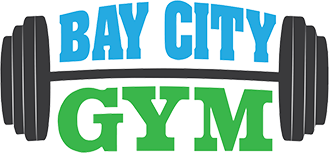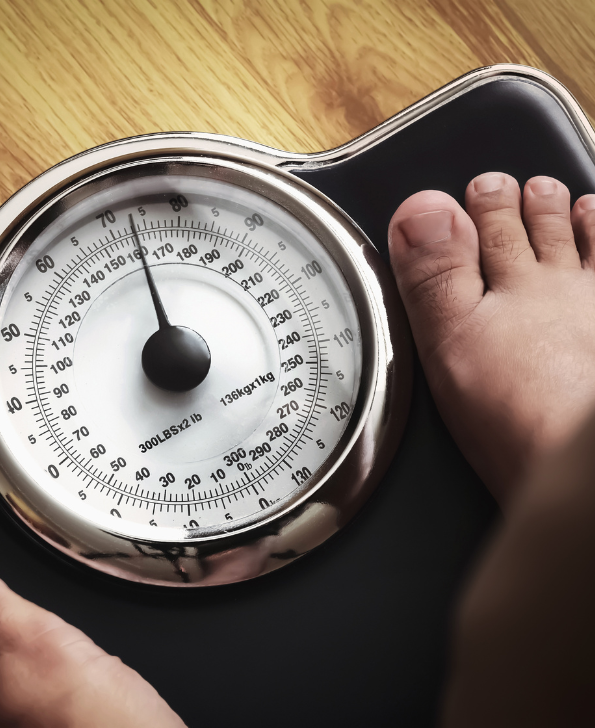Article by – Chrissy Newall – Owner, Coach and Group Fitness Instructor
You’ve been hitting the gym, committing to a regular workout routine, and yet the scale refuses to move. It can feel frustrating and demotivating, especially when you’re putting in the effort. But weight loss is more than just calories burned in the gym—it’s influenced by multiple factors like diet, gut health, strength training, sleep, stress, and hormones. Understanding how these elements interplay with each other can help you unlock progress.
1. Diet: The Foundation of Weight Loss
Exercise is essential for building fitness, but it’s hard to out-exercise a bad diet. Weight loss primarily comes down to creating a calorie deficit—burning more calories than you consume. However, not all calories are equal, and the quality of your diet plays a significant role in determining whether your efforts at the gym translate into real weight loss.
Common Diet Pitfalls:
Overeating healthy foods: Even nutritious foods like avocados, nuts, and whole grains contain calories that add up quickly. Portion control is key.
Too much processed food: Foods high in refined sugars and unhealthy fats can cause blood sugar spikes and crashes, leading to increased hunger and cravings.
Not enough protein: Protein helps with satiety and muscle repair. A diet low in protein can result in slower metabolism and increased appetite.
Diet Recommendations:
Focus on a balanced, whole-food diet that includes lean proteins, vegetables, whole grains, and healthy fats. Prioritize nutrient density over calorie density.
Avoid processed foods that are high in added sugars and unhealthy fats.
Consider tracking your meals for a week to understand your calorie intake better. This will help you make informed choices without going overboard.
2. Gut Health: The Hidden Key to Weight Loss
Your gut microbiome, which is the collection of bacteria in your digestive system, plays a critical role in your ability to lose weight. Research shows that a balanced and healthy gut can help regulate metabolism, influence fat storage, and control hunger hormones. If your gut health is off balance, it can make weight loss more difficult, even if you’re exercising.
Signs of Poor Gut Health:
Bloating or digestive discomfort.
Frequent sugar cravings.
Irregular bowel movements or constipation.
How to Improve Gut Health:
Eat more fiber: A fiber-rich diet from vegetables, fruits, and whole grains feeds good bacteria in the gut, promoting diversity in your microbiome.
Probiotics and fermented foods: Foods like yogurt, kefir, sauerkraut, and kombucha are rich in probiotics that can enhance gut health.
Limit sugar: Excess sugar can feed harmful bacteria in your gut, throwing your microbiome out of balance.
Decrease alcohol intake: Alcohol can disrupt the balance of good bacteria in your gut, cause inflammation, and lead to digestive issues. Reducing your alcohol consumption supports gut health and overall digestive function.
A healthy gut can enhance your ability to lose weight by optimizing digestion, reducing inflammation, and regulating hunger.
3. Strength Training: Muscle vs. Fat
Cardio workouts may burn calories, but they often don’t build muscle. Building muscle is crucial for long-term fat loss because muscle tissue is metabolically active, meaning it burns more calories even when you’re at rest. If your workouts only consist of cardio and you’re not seeing results, it might be because you’re not strength training.
Why Strength Training Matters:
Increased metabolism: More muscle mass increases your resting metabolic rate, helping you burn more calories throughout the day.
Fat loss, not just weight loss: Strength training helps you lose fat, not just weight. You might be losing fat and gaining muscle simultaneously, which could be why the scale isn’t moving but your body composition is changing.
Strength Training Tips:
Incorporate weightlifting, resistance bands, or bodyweight exercises into your routine at least 2-3 times per week.
Focus on compound movements like squats, deadlifts, lunges, and bench presses that work multiple muscle groups at once.
Combine strength training with high-intensity interval training (HIIT) to boost fat loss.
4. Sleep: The Overlooked Factor in Weight Loss
Sleep is often overlooked in weight loss discussions, but it’s one of the most crucial factors. When you don’t get enough sleep, your body’s hormones, including those that regulate hunger and metabolism, can become imbalanced.
How Lack of Sleep Affects Weight Loss:
Increased appetite: Sleep deprivation raises levels of ghrelin, the hormone that triggers hunger, and lowers leptin, the hormone that signals fullness. This can cause you to eat more, especially high-calorie comfort foods.
Slower metabolism: Poor sleep can reduce your body’s ability to process glucose, leading to weight gain and insulin resistance over time.
Sleep Improvement Tips:
Aim for 7-9 hours of quality sleep per night. Establish a bedtime routine to help your body wind down.
Avoid screens an hour before bed, as the blue light from phones and computers can interfere with your body’s ability to fall asleep.
Manage stress before bed with relaxing activities like reading, meditation, or a warm bath.
5. Stress: The Weight Loss Saboteur
Chronic stress can derail your weight loss goals in several ways. When you’re stressed, your body produces more cortisol, the “stress hormone,” which can lead to increased fat storage, particularly around your abdomen. Stress can also lead to emotional eating and cravings for sugary, high-calorie foods, undermining your efforts to lose weight.
Why Stress Impacts Weight Loss:
Cortisol and fat storage: High cortisol levels can cause your body to store fat, especially visceral fat, which is the type of fat around your organs and abdomen.
Emotional eating: Stress often triggers cravings for sugary, fatty, or comfort foods, which can derail your diet.
Stress-Management Strategies:
Incorporate stress-reducing activities into your routine, like yoga, meditation, or deep breathing exercises.
Prioritize self-care and make time for relaxation, even if it’s just 10-15 minutes a day.
Stay mindful during stressful moments. Practice emotional awareness to prevent stress-driven eating.
6. Hormones: The Silent Players in Weight Loss
Hormones play a crucial role in regulating your body’s metabolism, hunger, and fat storage. When these hormones are out of balance, weight loss can become more challenging, regardless of your efforts in diet and exercise. Common hormonal imbalances affecting weight include those related to insulin, thyroid function, and sex hormones like estrogen and testosterone.
How Hormones Affect Weight Loss:
Insulin resistance: If your body has trouble processing insulin, it can lead to increased fat storage, especially around the abdomen. This condition is common in people with prediabetes or type 2 diabetes.
Thyroid issues: An under-active thyroid (hypothyroidism) slows down metabolism, making it harder to lose weight, even with regular exercise.
Imbalances in estrogen and testosterone: These sex hormones play a role in fat distribution. Women in menopause, for example, often experience shifts in fat storage due to fluctuating estrogen levels.
How to Address Hormonal Imbalances:
If you suspect a hormone issue, consult with a healthcare provider for proper testing and diagnosis.
Maintain a balanced diet rich in whole foods to support overall hormone health.
Manage stress, as chronic stress can worsen hormonal imbalances, particularly by increasing cortisol and insulin resistance.
Ensure you’re getting enough sleep, as poor sleep can also disrupt hormones like leptin and ghrelin.
Conclusion: Weight Loss is a Multifaceted Journey
If you’re not losing weight despite exercising, remember that factors like diet, gut health, strength training, sleep, stress, and hormones all play a role. While exercise is important, it’s only one piece of the puzzle. By addressing these other aspects of your lifestyle, you’ll create a balanced approach to weight loss that’s sustainable in the long term.
Focus on nourishing your body with the right foods, supporting your gut health, building muscle through strength training, prioritizing sleep, managing stress, balancing your hormones, and decreasing alcohol intake. With a holistic approach, the results will follow.


